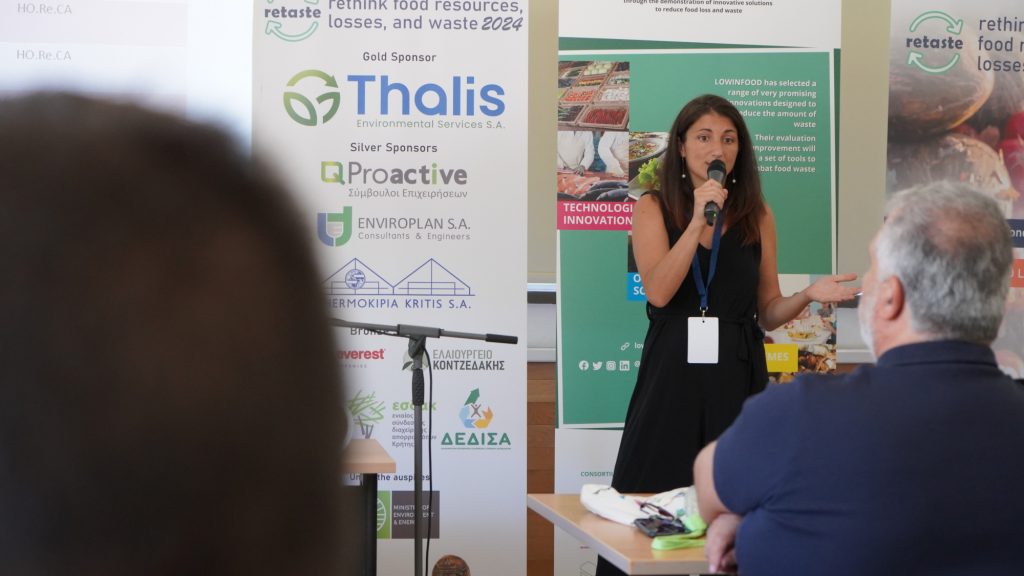
Useful lessons about the challenges and opportunities of implementing food waste reduction innovations
On 26 September 2024, at the Retaste Conference, LOWINFOOD partner Claudia Giordano (Natural Resource Institute of Finland) presented the results of the analysis on the effectiveness of innovative solutions in reducing food waste tested in LOWINFOOD.
They established a monitoring framework to provide insights into the practical application and effectiveness of the innovations. This framework allowed researchers to measure and evaluate the impacts in real-world settings, highlighting what works and what doesn’t in reducing food waste, and leading all the innovations to a TRL 5-8.
Three significant lessons emerged from this study:
- Any single innovation cannot be expected to be universally effective. An innovation that proves highly effective in one context might fail completely just a few kilometres away. This variability highlights the necessity of adapting top-down solutions to specific local contexts, and the need to always test the most brilliant idea into reality.
- The process of reducing food waste is far more complex than merely educating consumers or presenting potential solutions to stakeholders: good intentions often crush into habits, economic and time priorities, and primary needs.
- Despite the efforts and the intentions to measure food waste in an “objective” manner, the measuring exercise is sometimes difficult, leading in a few cases to small sample sizes, or to aware (and biased) respondents and reported quantities.
Additionally, this assessment also highlighted the need for third-party evaluations in assessing the effectiveness of food waste reduction initiatives. Independent evaluations provided an objective perspective in most cases.
Share on Facebook Share on Twitter Share on Pinterest